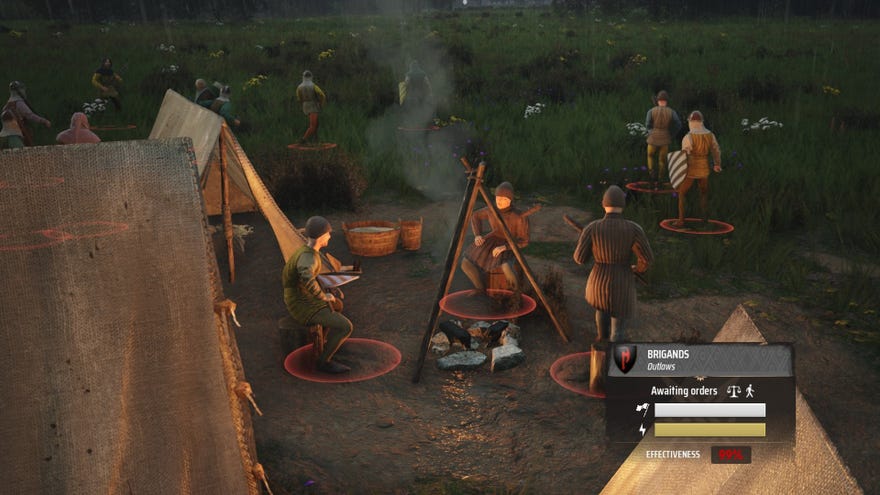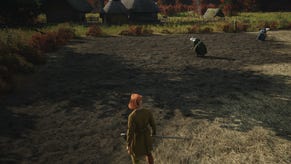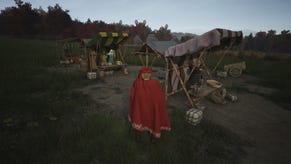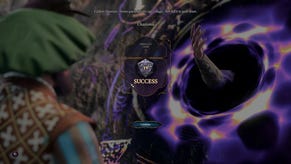The Manor Lords dev has the "ideal" approach to early access, says Hooded Horse: "It's not like, vote on the next feature"
Publisher CEO also stresses the value of in-game footage in trailers
Medieval city builder Manor Lords was Steam's most-wishlisted game prior to release, and has now managed the feat of transmuting that anticipation into broad enthusiasm and very healthy sales. Not too shabby, considering that it's mostly the work of just one person, Grzegorz Styczeń of Slavic Magic, who has hopefully found time to sleep now and then between fielding bug reports and preparing the game's first patches.
Styczeń understandably doesn't have much time for interviews right now - those troublesome archers aren't going to balance themselves - but yesterday I spoke to Tim Bender, CEO of Manor Lords publisher Hooded Horse, about how Styczeń is getting on. The answer, apparently, is: pretty good, because Styczeń has a healthy approach to early access development in keeping players close, without quite handing them the wheel.
"My personal opinion is best kept well away from the game," Bender began. "The CEO of the publisher should not be getting involved on how a game works. But, you know, I can tell you that Greg has a great approach to development - even before early access, [though] it's an approach that is ideal for development in EA. It's a very collaborative approach. It's a very community-engaged approach. He would take polls on things, ask their opinions on various things, get that information, and then take that sort of under consideration. It's not like 'vote on the next feature', it's more like, 'vote to provide information' so that he can figure out [the next steps].
"It's that sort of best use of community engagement, in guiding someone's thinking and feed that thinking, so they can search for the way within a coherent vision [of how] to design the game," Bender went on. "And that's been Greg's approach before early access. He had the alpha tester group, over 100 people helping him work and refine the game. He also would regularly engage with the broader community, ask them questions as well. So it's not a strange new thing for him. It's just the scale has of course gone up hugely, but he's got the right approach for it."
Styczeń's knack for community management comes across in a blogpost shortly before launch which made clear what Manor Lords isn't - not a Total War killer, not an Age of Empires homage, but a laidback, in-depth village sim with some martial elements. "A lot of people before release were quite worried about that - or were talking about being worried," Bender noted. "It's strange, because most people understood that it wasn't Total War, but they would say things like 'Oh, I'm worried that other people think it's a Total War game'." While being compared to a series like Total War is obviously a plus in many respects - one I would not fault Hooded Horse and Slavic Magic for leaning into - Bender thinks Styczeń has done a fine job of not letting the comparisons go too far.
"You see negative reviews that are saying, 'hey, I didn't like this system', or 'I thought more of this would happen', or 'I was bothered by this'," he said. "All that feedback, you see positive reviews, many with the same criticism, but same but they still like the game [...] so it can go either way. But what you don't see is a deluge of people who are confused about what the game is."
In general, Slavic Magic and Hooded Horse have erred on the side of just showing people Manor Lords in action with their marketing. "The marketing of the game can go so many ways, right?" Bender went on. "Like, you can show a CG trailer that just looks really cool and tries to draw everyone in - it looks like a frickin' mediaeval action game, right. And then you have drawn the wrong people. If we did Heavy Metal trailers that are all CG of a king standing at the top of a giant castle with vast armies of thousands beneath them, you're gonna have a lot of disappointed people."
Right now, Hooded Horse are primarily supporting Styczeń by tracking and distilling player feedback. "We've got people mining the Steam forums, we've got a quality assurance team that's working on organising all the reports - there was a deluge of reports - organising that so the information can be provided to Greg," Bender said.
While the game has exceeded expectations, Bender feels that beyond a certain scale, the exact quantity of people playing a game and providing feedback becomes meaningless. "If you've got 100,000 people shouting at you, or you've got 50,000, or you've got 200,000, there probably isn't all that much difference in terms of how it affects your work. We knew it was going to be a tonne of people sharing their ideas and feedback and joining the community. And so we've had a lot of measures in place."
Bender's thoughts on Styczeń's handling of Manor Lords in early access put me in mind of Larian director of publishing Michael Douse's recent remarks about Baldur's Gate 3's three years in the pre-1.0 wilds. Amongst other things, Douse stressed the importance of not trying to give players the sense that they are effectively co-designers, or accommodate every piece of feedback that comes down the pipe. "It's scary," he said. "It turns your company sort of into a live service company, because you've got to feed that machine."
But he added that, given a healthy and proportionate relationship between developers and players, early access development is an unequalled way of cultivating a following. "If you don't know how to do early access, I wouldn't do early access," Douse said. "But if you are interested in creating a really strong core gameplay loop and then building around that, to foster a strong community, that's a really good way to do it. It's probably the best way to do it." I hope to hear similar things from Styczeń, once Manor Lords leaves early access an estimated year or so from now.

















.jpg?width=291&height=164&fit=crop&quality=80&format=jpg&auto=webp)